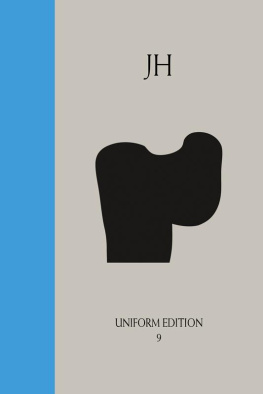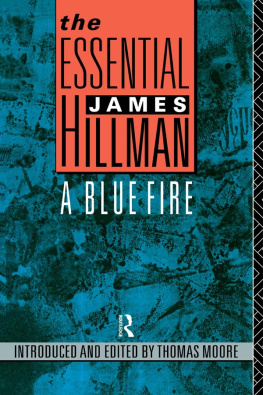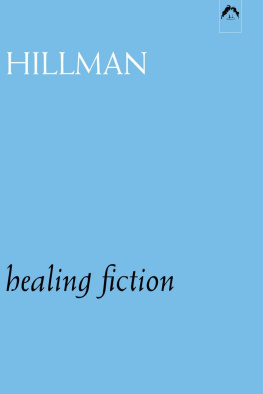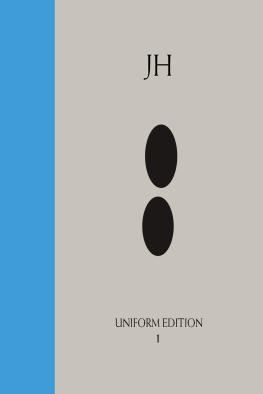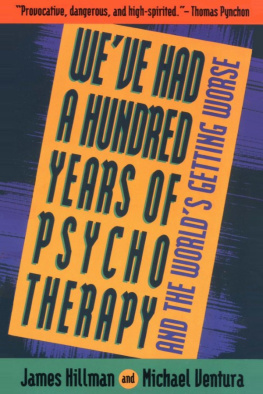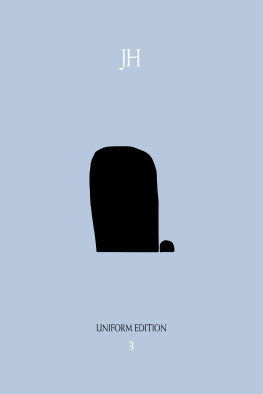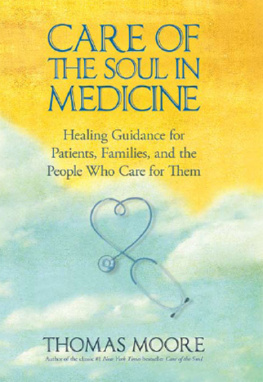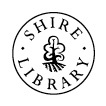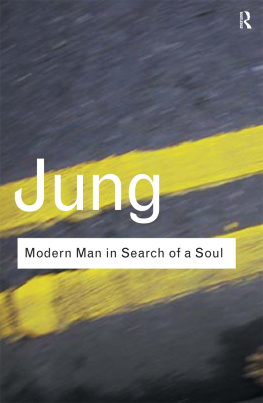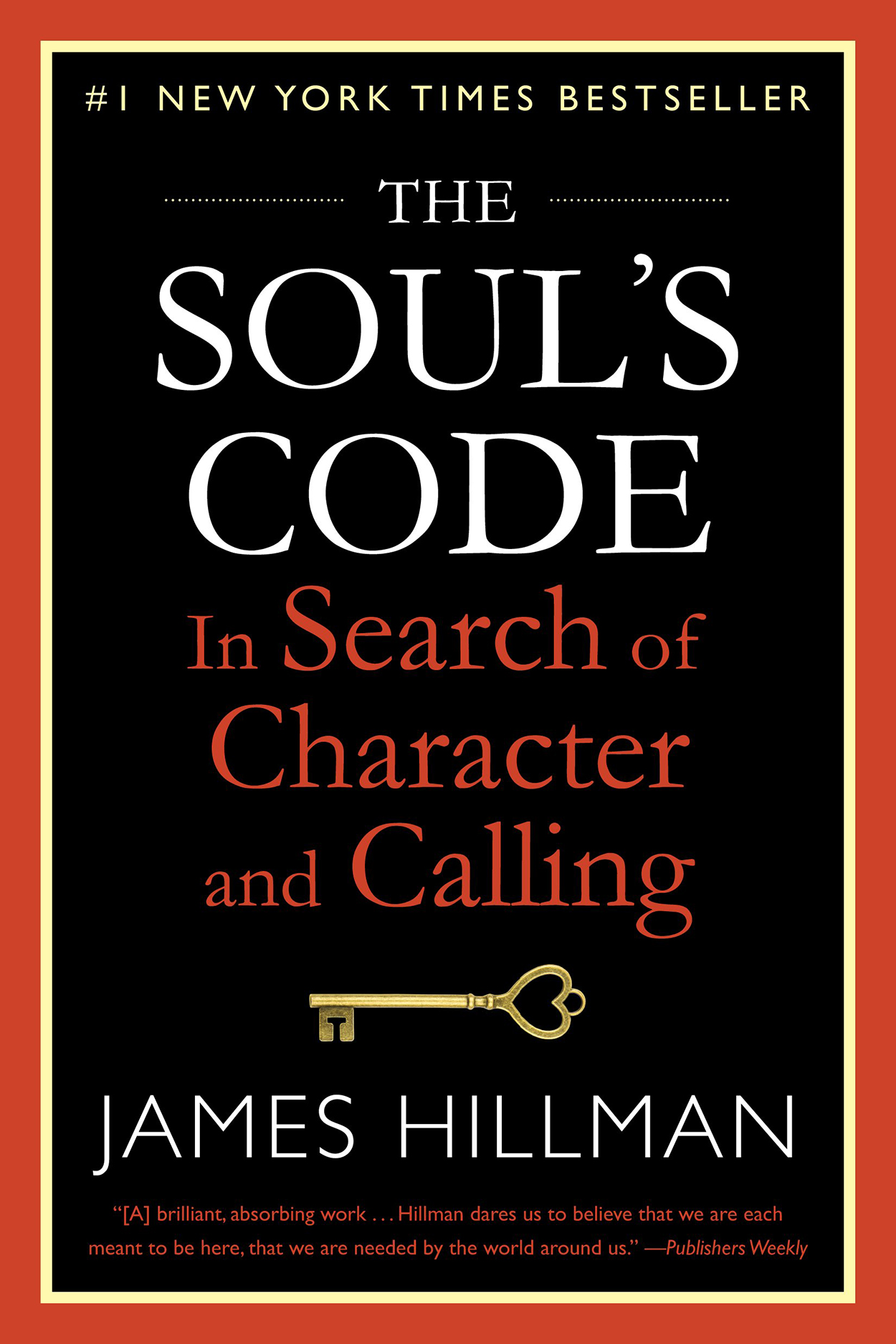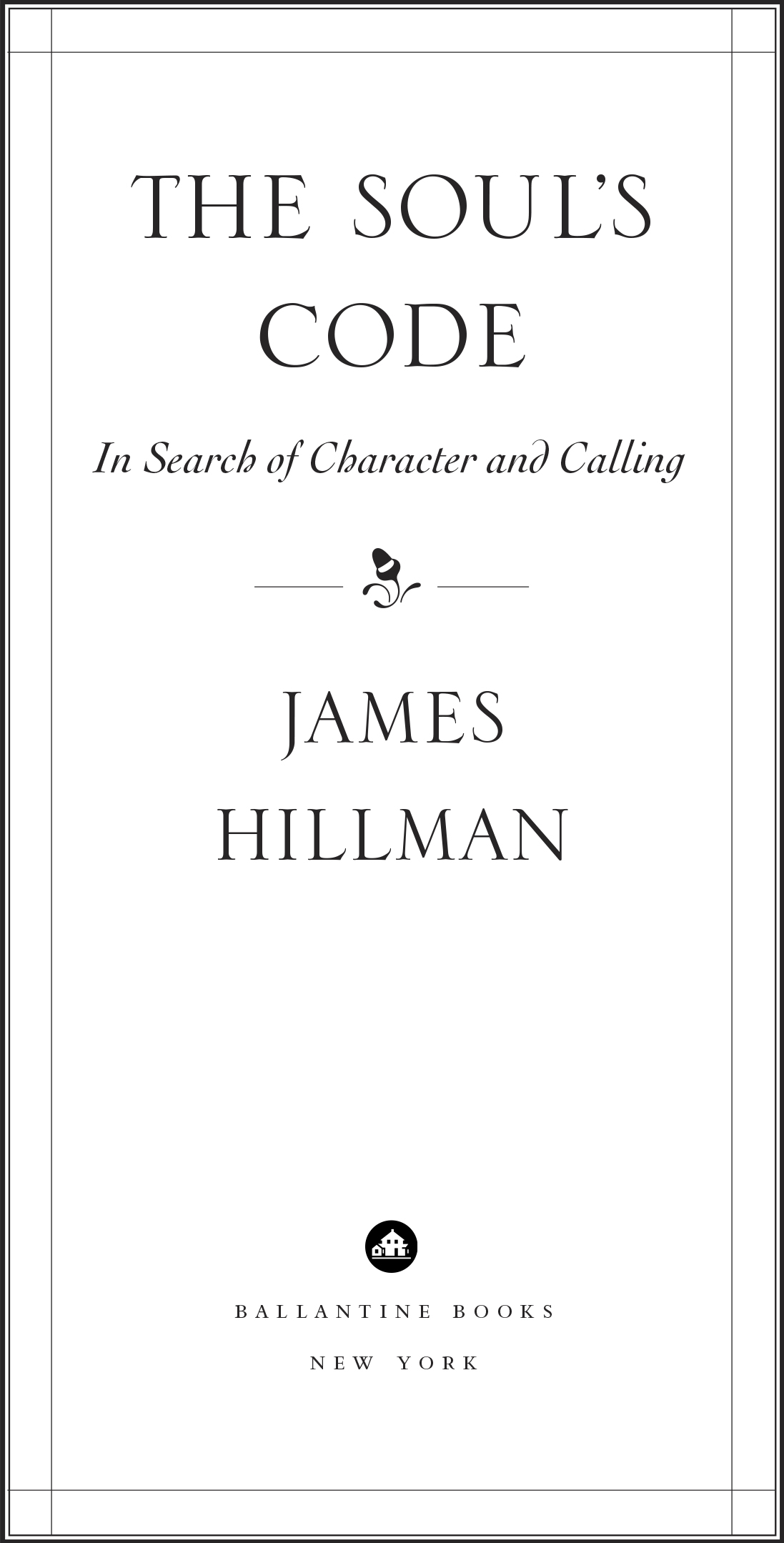Copyright 1996 by James Hillman
All rights reserved.
Published in the United States by Ballantine Books, an imprint of Random House, a division of Penguin Random House LLC, New York.
B ALLANTINE and the H OUSE colophon are registered trademarks of Penguin Random House LLC.
Originally published in the United States in hardcover by Random House, an imprint and division of Penguin Random House LLC in 1996.
Permission credits are located on .
ISBN 978-0-399-18014-9
Ebook ISBN 978-0-307-82844-6
randomhousebooks.com
Cover design: Victoria Allen
Cover photograph: Shutterstock
v3.1_r1
EPIGRAPHS IN LIEU
OF A PREFACE
genius can be bounded in a nutshell and yet embrace the whole fullness of life.
Thomas Mann
If life has a base that it stands upon then my [life] without a doubt stands upon this memory. It is of lying half asleep, half awake, in bed in the nursery of St. Ives. It is of hearing the waves breaking, one, two, one, two, behind a yellow blind. It is of hearing the blind draw its little acorn across the floor as the wind blew the blind out. It is of lying and hearing and feeling, it is almost impossible that I should be here
Virginia Woolf, A Sketch of the Past
Coming into this particular body, and being born of these particular parents, and in such a place, and in general what we call external circumstances. That all happenings form a unity and are spun together is signified by the Fates [Moirai].
Plotinus, II.3.15
Moira? the finished shape of our fate, the line drawn round it. It is the task the gods allot us, and the share of glory they allow; the limits we must not pass; and our appointed end. Moira is all these.
Mary Renault, The King Must Die
When all the souls had chosen their lives, they went before Lachesis. And she sent with each, as the guardian of his life and the fulfiller of his choice, the daimon that he had chosen, and this divinity led the soul first to Clotho, under her hand and her turning of the spindle to ratify the destiny of his lot and choice, and after contact with her, the daimon again led the soul to the spinning of Atropos to make the web of its destiny irreversible, and then without a backward look it passed beneath the throne of Necessity.
Plato, Republic X, 620e
In the final analysis, we count for something only because of the essential we embody, and if we do not embody that, life is wasted.
C. G. Jung
Of course, you can argue with the proposition that all we are is genes and environment. You can insist that theres something more. But if you try to visualize the form this something would take, or articulate it clearly, youll find the task impossible, for any force that is not in the genes or the environment is outside of physical reality as we perceive it. Its beyond scientific discourse. This doesnt mean it doesnt exist.
Robert Wright, The Moral Animal
Meaning is invisible, but the invisible is not contradictory of the visible: the visible itself has an invisible inner framework, and the in-visible is the secret counterpart of the visible.
M. Merleau-Ponty, Working Notes
Neither in environment nor in heredity can I find the exact instrument that fashioned me, the anonymous roller that passed upon my life a certain intricate watermark whose unique design becomes visible when the lamp of art is made to shine through lifes foolscap.
Vladimir Nabokov, Speak, Memory
Scientists have been unable to discover many profound principles that relate the action of mothers, fathers, or siblings to psychological characteristics in the child.
Jerome Kagan, The Nature of the Child
The so-called traumatic experience is not an accident, but the opportunity for which the child has been patiently waitinghad it not occurred, it would have found another, equally trivialin order to find a necessity and direction for its existence, in order that its life may become a serious matter.
W. H. Auden
One always learns ones mystery at the price of ones innocence.
Robertson Davies, Fifth Business
Because they have so little, children must rely on imagination rather than experience.
Eleanor Roosevelt, You Learn by Living
There is neither beginning nor end to the imagination but it delights in its own seasons reversing the usual order at will.
William Carlos Williams, Kora in Hell
It was Karl Marx, I think, who once proposed that evolution be studied in reverse, with an eye firmly fixed on the evolved species while glancing backward for hints.
Jerome Bruner, In Search of Mind
I dont develop; I am.
Pablo Picasso
Even before reason there is the inward movement which reaches out towards its own.
Plotinus, III.4.6
In every artists development the germ of the later work is always found in the earlier. The nucleus around which the artists intellect builds his work is himself and this changes little from birth to death.
The only real influence Ive ever had was myself.
Edward Hopper
Adolescents sense a secret, unique greatness in themselves that seeks expression. They gesture toward the heart when trying to express any of this, a significant clue to the whole affair.
Joseph Chilton Pearce, Evolutions End
I wish that you know all that I think about Genius and the Heart.
John Keats, Letters
Is that what they call a vocation, what you do with joy as if you had fire in your heart, the devil in your body?
Josephine Baker
A method that fits the small work but not the great has obviously started at the wrong end. It seems to be a lesson of history that the commonplace may be understood as a reduction of the exceptional, but the exceptional cannot be understood by amplifying the commonplace. Both logically and causally the exceptional is crucial because it introduces (however strange it may sound) the more comprehensive category.
Edgar Wind, An Observation on Method
CONTENTS
CHAPTER 1

IN A NUTSHELL: THE ACORN THEORY AND THE REDEMPTION OF PSYCHOLOGY
There is more in a human life than our theories of it allow. Sooner or later something seems to call us onto a particular path. You may remember this something as a signal moment in childhood when an urge out of nowhere, a fascination, a peculiar turn of events struck like an annunciation: This is what I must do, this is what Ive got to have. This is who I am.
This book is about that call.
If not this vivid or sure, the call may have been more like gentle pushings in the stream in which you drifted unknowingly to a particular spot on the bank. Looking back, you sense that fate had a hand in it.
This book is about that sense of fate.
These kinds of annunciations and recollections determine biography as strongly as memories of abusive horror; but these more enigmatic moments tend to be shelved. Our theories favor traumas setting us the task of working them through. Despite early injury and all the slings and arrows of outrageous fortune, we bear from the start the image of a definite individual character with some enduring traits.
This book is about that power of character.


